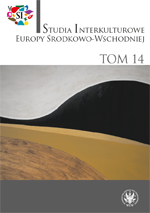„I nie tylko w powiastkach drzemie ta historia” – „Młyn
Bałtaragisa” Kazysa Boruty: literatura jako medium pamięci
“But it’s not just people who remember”
– Whitehorn’s Windmill
by Kazys Boruta: Literature as a Medium of Cultural Memory
Author(s): Marcin NiemojewskiSubject(s): Anthropology, Social Sciences, Language and Literature Studies, Studies of Literature, Culture and social structure
Published by: Wydawnictwa Uniwersytetu Warszawskiego
Keywords: “Whitehorn’s Windmill”; Kazys Boruta; literature as a medium of memory; cultural memory; folk culture
Summary/Abstract: “Whitehorn’s Windmill” is considered to be the most outstanding work of KazysBoruta and one of the most important Lithuanian novels of the 20th century. Thebook was written during World War II when the Lithuanian state became theobject of aggression of two totalitarian powers and lost independence for a longtime, and it has grown from the writer’s anxiety about the fate of his country and the persistence of Lithuanian identity. Hence, Boruta reached for the richresources of the native folklore, to evoke the mythologized image of theLithuanian village, which in Lithuanian literature has the rank of chronotope,and at the same time, it is an important component of Lithuanian imaginationabout the sources of national culture. The story, the meaning and functions of the“Whitehorn’s Windmill,” its genesis and post-war fate, its literary and non-literarycontexts, as well as the history of its reception, allow us to interpret the workfrom the perspective of reflection on literature as a medium of cultural memory.
Journal: Studia Interkulturowe Europy Środkowo-Wschodniej
- Issue Year: 2021
- Issue No: 14
- Page Range: 224-248
- Page Count: 25
- Language: Polish

